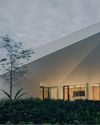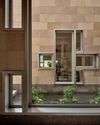
Let us be honest: Modernist buildings are not the easiest to love. Abstract, hard-edged, unornamented, and often composed of solid, simple walls of reinforced concrete, they are the antithesis of conventional definitions of beautiful architecture.
In Singapore, they are everywhere, since the country underwent rapid urbanisation when the modern tradition was in vogue, loosely defined as from the 1950s to the 1980s.
It naturally begs the question of why they are special and worth saving – in short, what exactly is the fuss?
ARCHITECTS STATE THEIR CASE
Perhaps the most compelling argument is that they are symbols of Singapore’s “can-do spirit” in its nation-building years.
“These are the tangible legacy of the visionary leadership of local politicians, planners, developers, and architects who created a vast new landscape during 1965 to 1975,” says Ho Weng Hin, one of the three founding members of the Docomomo-Sg Working Group-In-Progress and Founding Partner of Studio Lapis.
For example, the Pearl Bank Apartments, designed by architect Tan Cheng Siong, became an important prototype for high-rise, high-density urban living that embodied the pioneering spirit and innovation of that era.
While it still stood, it was studied and feted by architects, planners, urbanists, architectural historians and heritage enthusiasts both as an elegant solution to applied urban research and experiment, and for its pure bold modernist aesthetics.
Denne historien er fra Issue 116-utgaven av d+a.
Start din 7-dagers gratis prøveperiode på Magzter GOLD for å få tilgang til tusenvis av utvalgte premiumhistorier og 9000+ magasiner og aviser.
Allerede abonnent ? Logg på
Denne historien er fra Issue 116-utgaven av d+a.
Start din 7-dagers gratis prøveperiode på Magzter GOLD for å få tilgang til tusenvis av utvalgte premiumhistorier og 9000+ magasiner og aviser.
Allerede abonnent? Logg på

Tailored For The Curious Explorer
The new Alma House at the New Bahru enclave reflects the collaborative spirit of a school environment.

Eco And Egalitarian
Can a building represent a culture? Berrel Kräutler Architekten's sensitive renovation of the Embassy of Switzerland in Singapore stimulates discourse.

Building A Green Home
This semi-detached house by Zivy Architects explores passive tropical design, the delight in architecture and the issues of multi-generational living.

The Natural Balance
Inspired by the serene beauty of dewdrops, the Antao Collection by Villeroy & Boch transforms bathrooms into wellness sanctuaries, combining sustainability with timeless elegance.

Inspiring Creativity And Exploration
The new Hafary House at Lavender reflects the brand’s vibrancy and innovation, as well as provide an inspiring and engaging space for customers.

Home Is Where The Heart Is
A vacation house is reimagined for a multi-generational family to gather for holidays in the bucolic setting of Yongjia in Zhejiang, China.

balancing act: nature and humanity
In this inspiration-led series, we asked Jay Liu and Alex Liu, co-founders of Right Angle Studio, to dream up a unique interior concept using mainly items from Space Furniture.

rethinking, remaking, reframing
Aoki Akio, the founder of DESIGNART TOKYO discusses the importance and legacy of Tokyo's eminent art and design event, particularly for young creatives.

rebuilding communities
Shift2024, the much-anticipated conference returns with a stellar line-up of prolific architects making their mark in Asian urban design.

unparalleled italian craftsmanship
Filippo Arnaboldi, Chief Executive Officer of Frette, tells us how this luxury lifestyle Italian brand is moving forward with times yet not forgetting about its existing legacy.